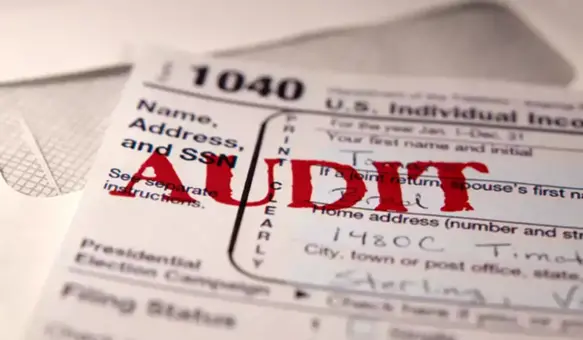Bitcoin Taxes 101: All You Need to Know

You can get in trouble with the Internal Revenue Service (IRS) in a variety of ways when using bitcoin, so it's worth learning the regulations. What's the larger picture? Bitcoin and other cryptocurrencies that you buy, trade, mine, or use to pay for items may be subject to taxation, which means you'll have to pay bitcoin tax.
Furthermore, if your company or client pays you in bitcoin or another cryptocurrency, that money is taxable income, and you will be subject to crypto tax. When you buy, sell, mine, or use cryptocurrencies, you must report your transactions in U.S. dollars, which often entails translating the value of your cryptocurrency to dollars. Here's how utilizing virtual currency affects how you pay taxes in greater detail:
1. How does the IRS classify bitcoin?
The IRS published a notification in 2014 indicating that bitcoin is property, not cash, for tax purposes. That may seem like a minor distinction, but it serves as the foundation for the IRS's determination of whether or not individuals owe taxes. The tax implications of bitcoin center upon what the government agency refers to as a “realization event” which works like this: If you earned a bitcoin (or a portion of one) through mining, the value has tax liability; there is no need to sell the currency to incur a tax burden. If you sold bitcoin or used it to buy goods and services, you will owe taxes if the realized value (the sale price of bitcoin, for example) is more than the price at which you bought bitcoin. There's a chance you'll have tax on bitcoin gains at both short- and long-term rates.
2. Do you pay taxes on bitcoin?
Is bitcoin taxable? Buying and selling cryptocurrency will incur your cryptocurrency tax because the IRS considers cryptocurrency to be property rather than cash. As a result, tax regulations that apply to property (but not real estate) transactions, such as selling collectible coins or vintage automobiles with potential for appreciation, also apply to bitcoin, ethereum, and other cryptocurrencies.
The IRS isn't joking around either and may charge penalties if you fail to declare your taxable income, including money from the cryptocurrency gains. The IRS is requiring you to answer "yes" or "no" to a question about whether you had any crypto transactions throughout the year. Please get advice from a tax specialist likes the ones over at Taxes for Expats on your specific reporting requirements.
3. When do you have to pay taxes on bitcoin?
How is bitcoin taxed? The following kinds of transactions using bitcoin are considered taxable:
- Sale of bitcoins, mined personally, to a third party. For example, if you mine bitcoin and profitably sell it to another person, you must pay capital gains taxes on the transaction.
- Sale of bitcoins bought from someone to a third party. If you buy bitcoin from a cryptocurrency exchange or another individual and subsequently sell it for a profit, you must pay capital gains taxes on the transaction.
- Using mined bitcoins to buy goods or services. If you buy coffee using bitcoin that you mined at home, for example, you must pay taxes on the transaction. (The tax amount is determined by the transaction's circumstances, such as the value of bitcoin at the time of sale and the price of coffee.)
-
Using bitcoin, bought from someone, to buy goods and services. If you withdraw bitcoin from an exchange to your own wallet and use it to buy something, you will be subject to capital gains taxes.
After deducting expenses incurred throughout the mining process, the first and third scenarios are taxed as personal or business income. The second and fourth situations are more similar to asset investments. Let's imagine you bought a bitcoin for $200 and sold it for $300, or used the same amount of money to buy anything else. The $100 profit from the transaction is subject to capital gains tax.
4. Do you have to pay taxes if you receive cryptocurrencies as payment for goods and services?
For tax purposes, salaries or payments received in cryptocurrency are classified as ordinary income. The value of the cryptocurrency on the day it was used to pay a salary is its value or cost basis.
5. Do you have to pay bitcoin taxes if you are a bitcoin miner?
Yes, indeed. Mining for cryptocurrencies is a taxable event. The coin's fair market value, also known as its cost basis, is its price at the time you mined it. The good news is that you can deduct mining equipment and materials as a business expense. Depending on whether you mined cryptocurrency for personal or individual benefit, the nature of such deductions varies. If you operate a mining company, you can take advantage of tax deductions to lower your tax burden. These deductions, however, are not available if you mined cryptocurrency for personal gain.
6. Do you have to pay cryptocurrency taxes when you convert from one cryptocurrency to another?
Under the Internal Revenue Code 1031, converting one cryptocurrency to another, such as bitcoin to ether, is classified as a like-kind transfer. The IRS permits you to defer income tax on such transactions. During the early days of crypto trading, many crypto investors took use of this opportunity to delay their revenue from bitcoin trades. The Tax Cuts and Jobs Act (TCJA) of 2017 put an end to this practice by stating that like-kind transfers are only allowed in real estate transactions.
7. What are the tax implications of donating, gifting, or inheriting cryptocurrencies?
Donations in cryptocurrency are handled similarly to monetary donations. They can be deducted from your taxes. Based on the market price at the time, an appraiser will assign a fair market value to the coin. On the price gain, the donor is not required to pay any taxes. Gifts of Bitcoin worth less than $15,000 are not taxed. If a recipient of a crypto gift worth more than $15,000 decides to sell it, their cost basis is the same as the donor's. Crypto assets that are inherited are treated the same as regular assets, which means they are subject to the same estate restrictions.
8. What are some special considerations for crypto tax?
Bitcoin taxation and reporting are not as straightforward as they appear. For starters, bitcoin's price volatility makes it difficult to assess the cryptocurrency's fair worth in purchase and sale transactions. It's also tough to figure out which accounting system is best for Bitcoin taxation. Although Last In, First Out (LIFO) and Highest In, First Out (HIFO) have the potential to lower taxes, the IRS has only approved a handful of cases of their use by crypto dealers. The most often used method for bitcoin accounting is first in, first out.



